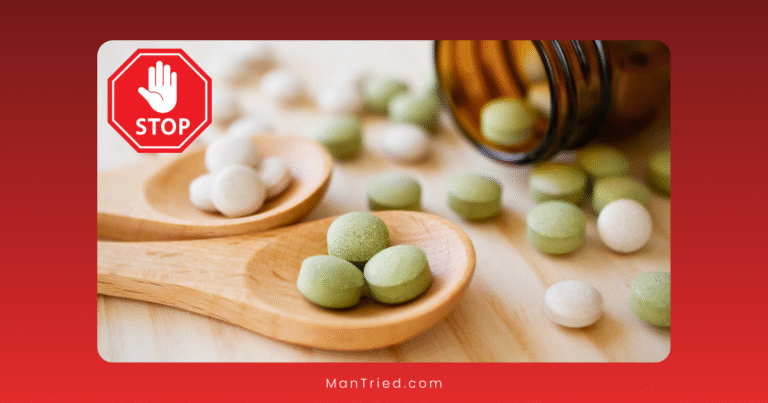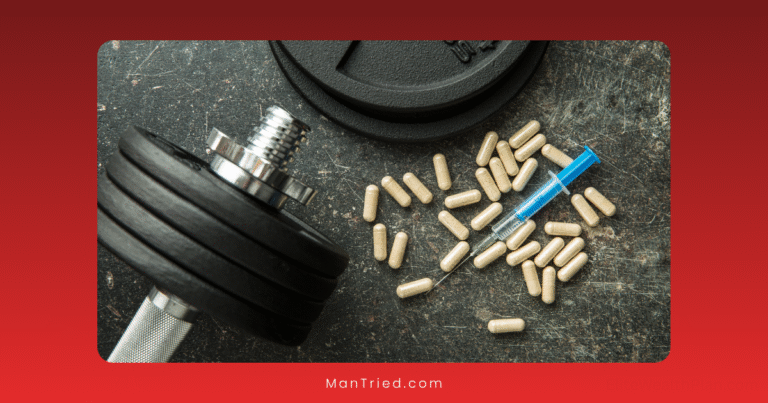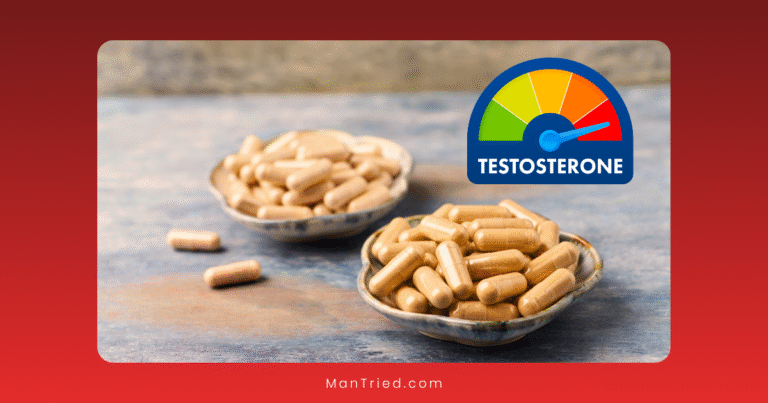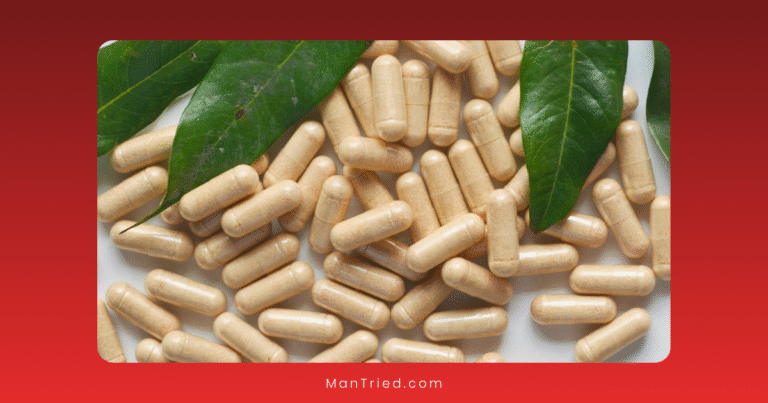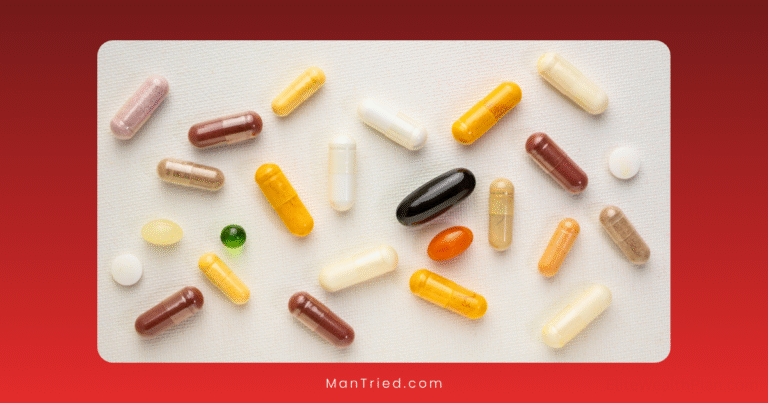Magnesium: The Overlooked Mineral for Testosterone Production
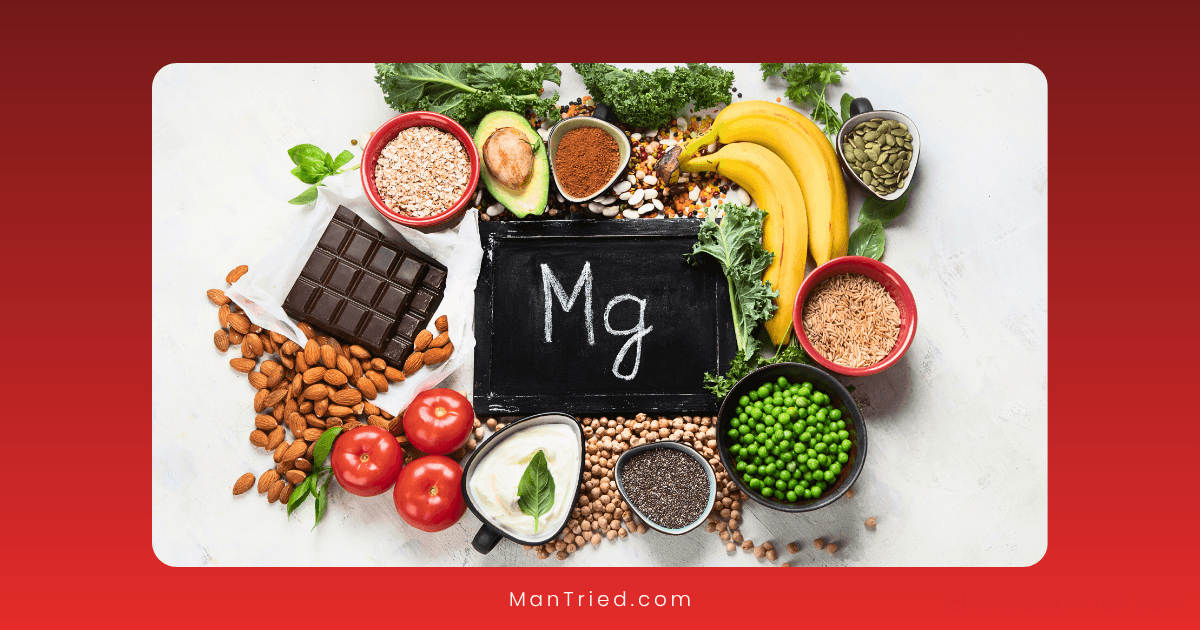
When it comes to optimizing testosterone levels, most men immediately think of expensive supplements, rigorous exercise routines, or even hormone replacement therapy. Yet one of the most powerful testosterone supporters might be hiding in plain sight: magnesium, an essential mineral that many men are unknowingly deficient in.
Despite being involved in over 300 biochemical reactions in the body, magnesium rarely gets the spotlight in discussions about hormonal health. However, emerging research suggests this humble mineral may play a crucial role in testosterone production and bioavailability—potentially offering a simple, affordable strategy for men looking to naturally support their hormonal health.
Let’s explore the surprising connection between magnesium and testosterone, and why this mineral deserves far more attention than it typically receives.
The Testosterone Crisis: A Modern Male Health Concern
Before diving into magnesium’s role, it’s worth understanding why testosterone optimization has become such a focus for many men.
Testosterone levels in men have been declining steadily over the past few decades—a trend that cannot be explained by aging alone. A 2007 study in the Journal of Clinical Endocrinology and Metabolism found that average testosterone levels in American men dropped by approximately 1% per year since the 1980s, meaning a 60-year-old man in 2004 had testosterone levels about 17% lower than a 60-year-old man in 1987.
This decline matters because testosterone influences virtually every aspect of male health, including:
- Muscle mass and strength
- Bone density
- Fat distribution
- Red blood cell production
- Libido and sexual function
- Energy levels and mood
- Cognitive function
With so much at stake, finding safe, effective ways to support healthy testosterone levels has become a priority for many health-conscious men.
Magnesium: The Multitasking Mineral
Magnesium is the fourth most abundant mineral in the human body and is involved in hundreds of enzymatic reactions. Despite its importance, studies suggest that up to 50-70% of adults don’t meet the recommended daily intake of magnesium.
According to research from the National Institutes of Health, the recommended daily allowance (RDA) for magnesium is:
- 400-420 mg for adult men
- 310-320 mg for adult women
Yet dietary surveys indicate that many American men consume only about 80% of this recommended amount, with average intakes around 225 mg per day—creating a persistent low-grade deficiency that can affect numerous bodily functions, including hormone production.
The Magnesium-Testosterone Connection: What the Science Says
The relationship between magnesium and testosterone is supported by a growing body of research:
1. Direct Correlation Between Magnesium and Testosterone Levels
A significant study published in Biological Trace Element Research found that magnesium supplementation increased testosterone levels in both active and sedentary individuals. The researchers gave participants 10mg of magnesium per kilogram of body weight daily for four weeks.
The results were impressive:
- Both total and free testosterone levels increased
- The effect was more pronounced in men who exercised
- Even sedentary participants saw measurable increases
Another study examining older men found a strong positive correlation between serum magnesium levels and total testosterone, independent of other factors like age, body mass index (BMI), alcohol consumption, and physical activity.
2. Magnesium’s Effect on Sex Hormone Binding Globulin (SHBG)
One of the most interesting mechanisms behind magnesium’s testosterone-boosting effects involves sex hormone binding globulin (SHBG)—a protein that binds to testosterone in the bloodstream, making it unavailable for use by the body’s tissues.
Research published in the Journal of Pharmaceutical and Biomedical Analysis demonstrated that magnesium acts as an uncompetitive inhibitor of the binding between testosterone and SHBG. In simpler terms, adequate magnesium levels may help prevent testosterone from being bound and deactivated, leaving more free testosterone available for use by the body.
This is particularly important because:
- Only about 2-3% of total testosterone circulates as free testosterone
- 44-65% is bound to SHBG
- The remaining portion is bound to albumin
By potentially reducing SHBG binding, magnesium may effectively increase the amount of bioavailable testosterone without actually increasing total production—a subtle but powerful effect.
3. Protection of Testosterone-Producing Cells
Magnesium appears to protect the Leydig cells in the testes—the cells responsible for testosterone production—from oxidative damage.
Research indicates that:
- Magnesium acts as a cofactor for antioxidant enzymes that protect Leydig cells
- It helps maintain the integrity of cell membranes in the testes
- It supports the enzymatic processes necessary for converting cholesterol into testosterone
4. Influence on Sleep Quality and Stress Reduction
Magnesium also supports testosterone production indirectly by:
- Improving sleep quality and duration, which is when much of testosterone production occurs
- Reducing cortisol (stress hormone) levels, which can otherwise suppress testosterone production
- Supporting vitamin D metabolism, another nutrient linked to testosterone levels
Magnesium Deficiency: A Hidden Epidemic
Despite its importance, magnesium deficiency is surprisingly common. According to data from the National Health and Nutrition Examination Survey, approximately 48% of Americans consume less than the required amount of magnesium from food.
Several factors contribute to this widespread deficiency:
1. Declining Nutrient Content in Foods
Modern agricultural practices have led to significant reductions in the mineral content of many foods. A study published in the Journal of the American College of Nutrition found that the magnesium content in various fruits and vegetables declined by 8-25% between 1950 and 1999.
2. Processed Food Consumption
Refining grains removes up to 80-95% of their magnesium content. As processed foods have become dietary staples, magnesium intake has declined proportionally.
3. Soil Depletion
Intensive farming practices have depleted magnesium from soils, resulting in lower magnesium content in crops.
4. Increased Magnesium Requirements
Several modern lifestyle factors increase our need for magnesium:
- Chronic stress
- Regular intense exercise
- Alcohol consumption
- Certain medications (including some antibiotics and diuretics)
5. Absorption Issues
Even with adequate intake, certain conditions can impair magnesium absorption:
- Gastrointestinal disorders (Crohn’s, celiac disease)
- Type 2 diabetes
- Age-related changes in digestive function
- High doses of zinc supplements
Signs You Might Be Magnesium Deficient
Mild to moderate magnesium deficiency often goes undiagnosed because the symptoms can be subtle and attributed to other causes. Signs that might indicate low magnesium include:
- Muscle cramps or twitches
- Fatigue and weakness
- Irritability and anxiety
- Poor sleep quality
- Headaches
- Low stress tolerance
- Reduced exercise performance
- Decreased libido (which may be related to lower testosterone)
For men specifically concerned about testosterone levels, chronically low magnesium may contribute to:
- Reduced energy and stamina
- Decreased muscle mass
- Increased body fat
- Diminished libido
- Mood changes
- Cognitive issues
Optimizing Magnesium Intake: Supplements vs. Food Sources
There are two primary approaches to increasing magnesium levels: dietary changes and supplementation.
Food Sources of Magnesium
The richest food sources of magnesium include:
Dark Leafy Greens
- Spinach: 78mg per ½ cup cooked
- Swiss chard: 75mg per ½ cup cooked
- Kale: 44mg per cup raw
Nuts and Seeds
- Pumpkin seeds: 168mg per ounce
- Almonds: 80mg per ounce
- Cashews: 74mg per ounce
Whole Grains
- Brown rice: 86mg per cup cooked
- Quinoa: 118mg per cup cooked
- Oats: 63mg per cup cooked
Legumes
- Black beans: 60mg per ½ cup cooked
- Edamame: 50mg per ½ cup
- Chickpeas: 39mg per ½ cup cooked
Other Good Sources
- Dark chocolate (70-85% cocoa): 65mg per ounce
- Avocado: 44mg per medium fruit
- Fatty fish like salmon: 53mg per 3 ounces
While focusing on these foods can significantly improve magnesium intake, it can still be challenging to reach optimal levels through diet alone—especially considering the variable absorption rates from different foods.
Magnesium Supplements: Choosing the Right Form
For those considering supplementation, it’s crucial to understand that not all magnesium supplements are created equal. The form of magnesium significantly affects its absorption, bioavailability, and specific benefits.
Here’s a breakdown of common magnesium supplements:
Magnesium Glycinate
- Absorption rate: High (up to 80%)
- Benefits: Gentle on the stomach, minimal laxative effect
- Best for: Sleep, anxiety, muscle recovery, and overall magnesium repletion
- Testosterone connection: Good option for raising levels without digestive side effects
Magnesium Citrate
- Absorption rate: Good (approximately 30%)
- Benefits: Well-absorbed, affordable
- Best for: General supplementation, occasional constipation
- Testosterone connection: Effective for increasing serum magnesium levels
Magnesium Malate
- Absorption rate: Good
- Benefits: May help with energy production and muscle pain
- Best for: Fatigue, exercise recovery
- Testosterone connection: Good for physically active men
Magnesium Threonate
- Absorption rate: High, crosses blood-brain barrier
- Benefits: Cognitive function, sleep quality
- Best for: Brain health, sleep
- Testosterone connection: May help through sleep improvement
Magnesium Oxide
- Absorption rate: Poor (as low as 4-10%)
- Benefits: High magnesium content by weight, inexpensive
- Best for: Short-term use, constipation
- Testosterone connection: Not ideal for testosterone support due to poor absorption
According to research published in the Journal of the American College of Nutrition, magnesium in the aspartate, citrate, lactate, and chloride forms is absorbed more completely and has higher bioavailability than magnesium oxide and magnesium sulfate.
For testosterone support specifically, magnesium glycinate and magnesium citrate are often recommended due to their superior absorption and minimal side effects.
Effective Dosing Strategies for Testosterone Support
Based on the available research, here are some evidence-based recommendations for using magnesium to support testosterone levels:
General Recommendations
- Standard dose: 200-400mg of elemental magnesium daily
- Timing: Divided doses with meals, or single dose before bedtime (especially magnesium glycinate)
- Upper limit: Stay below 350mg in a single dose to avoid digestive discomfort
- Maximum daily intake: The tolerable upper intake level is 350mg from supplements (in addition to food sources)
For Active Men
- Recommended dose: 300-400mg daily
- Timing: Some before and after workouts to support recovery
- Form: Magnesium glycinate or malate
For Men Over 50
- Recommended dose: 350-420mg daily
- Considerations: May need higher doses due to decreased absorption with age
- Form: Highly bioavailable forms like glycinate or citrate
For Stress Management and Sleep Support
- Recommended dose: 200-350mg before bed
- Form: Magnesium glycinate or threonate
- Benefit: May enhance testosterone production during sleep
Synergistic Nutrients: Maximizing Magnesium’s Effects
Magnesium doesn’t work in isolation. Several other nutrients can enhance its testosterone-supporting effects:
Zinc
Zinc works synergistically with magnesium to support testosterone production. The combination of zinc and magnesium (often with vitamin B6 added) forms the basis of ZMA supplements, which are popular among athletes.
Research suggests that zinc and magnesium together may:
- Support testosterone production more effectively than either mineral alone
- Help reduce SHBG levels
- Improve sleep quality, which indirectly supports testosterone
Vitamin D
Vitamin D has a well-established relationship with testosterone production. Interestingly, magnesium is required for vitamin D metabolism and activation.
Studies indicate that:
- Magnesium is needed for vitamin D to convert to its active form
- Without adequate magnesium, vitamin D supplementation may be less effective
- Combined supplementation may have synergistic effects on testosterone
Boron
This trace mineral appears to:
- Reduce SHBG levels
- Increase free testosterone
- Enhance magnesium absorption
A small study found that boron supplementation (10mg daily) increased free testosterone by 28% after just one week.
Potential Side Effects and Precautions
While magnesium is generally safe for most people, there are some considerations to keep in mind:
Digestive Issues
The most common side effect of magnesium supplementation is digestive discomfort, including:
- Diarrhea
- Nausea
- Abdominal cramping
These effects are dose-dependent and more common with certain forms of magnesium, particularly magnesium oxide and citrate due to their laxative effects. To minimize these issues:
- Start with a lower dose and gradually increase
- Choose highly absorbable forms like magnesium glycinate
- Take supplements with food
- Divide your daily dose into smaller amounts throughout the day
Medication Interactions
Magnesium can interact with several medications:
- Antibiotics: Magnesium can bind to tetracyclines and quinolone antibiotics, reducing their absorption. Take magnesium supplements at least 2 hours before or 4-6 hours after these medications.
- Blood pressure medications: Magnesium may enhance the effect of certain blood pressure medications, potentially causing blood pressure to drop too low.
- Diuretics: Some diuretics increase magnesium excretion, while potassium-sparing diuretics can reduce magnesium excretion.
- Bisphosphonates: Magnesium can decrease absorption of these osteoporosis medications.
Health Conditions
Certain health conditions require caution with magnesium supplementation:
- Kidney disease: Impaired kidney function can lead to magnesium accumulation. Always consult a healthcare provider before supplementing if you have kidney issues.
- Heart block: High doses of magnesium can worsen this condition.
- Myasthenia gravis: Magnesium may worsen muscle weakness in this autoimmune disorder.
Toxicity Risk
While magnesium toxicity from food sources is virtually impossible due to the kidney’s efficient excretion of excess magnesium, very high doses from supplements can lead to hypermagnesemia, especially in those with kidney dysfunction. Symptoms include:
- Hypotension (low blood pressure)
- Nausea and vomiting
- Facial flushing
- Urinary retention
- Lethargy and confusion
- In extreme cases, cardiac arrest
However, this is rare in individuals with normal kidney function taking recommended doses.
Real-World Application: A Practical Approach
Based on the research and clinical experience, here’s a practical approach to using magnesium for testosterone support:
Step 1: Assess Your Current Status
Before supplementing, consider:
- Diet quality: How many magnesium-rich foods do you regularly consume?
- Risk factors: Do you have any conditions or take medications that affect magnesium levels?
- Symptoms: Are you experiencing any signs of magnesium deficiency?
- Exercise habits: Higher activity levels increase magnesium requirements
While blood tests for magnesium exist, they’re not always reliable indicators of total body magnesium status since only 1% of magnesium is in the bloodstream. The standard serum magnesium test may miss deficiencies in cellular magnesium.
Step 2: Optimize Diet First
Before turning to supplements, focus on increasing dietary magnesium:
- Add a handful of pumpkin seeds or almonds to your daily snacks
- Include leafy greens like spinach in at least one meal per day
- Choose whole grains over refined options
- Consider mineral water with high magnesium content
- Reduce consumption of foods that deplete magnesium (alcohol, caffeine, high-sugar foods)
Step 3: Consider Supplementation Strategically
If dietary changes aren’t sufficient or practical:
- For general health and mild deficiency: 200-300mg magnesium glycinate or citrate daily
- For athletic performance: 300-400mg magnesium glycinate or malate daily
- For stress and sleep support: 300-400mg magnesium glycinate before bed
- For testosterone optimization: 400mg daily of a highly bioavailable form, possibly combined with zinc and vitamin D
Step 4: Monitor and Adjust
Pay attention to how your body responds:
- Improved sleep quality is often one of the first noticeable benefits
- Reduced muscle cramps or twitches
- Enhanced recovery from exercise
- Improved energy levels
- Better stress management
If you experience digestive discomfort, reduce the dose or try a different form. If symptoms persist, consult a healthcare provider.
Case Studies: Magnesium’s Impact on Real Men
While individual results vary, these composite case studies (based on clinical observations but with identifying details changed) illustrate how magnesium supplementation has helped real men with testosterone-related concerns:
Case 1: The Athlete with Declining Performance
Joe, 35, competitive runner
Joe had been experiencing unexplained fatigue and decreased performance despite maintaining his training routine. Blood tests showed low-normal testosterone levels (350 ng/dL). After implementing 400mg of magnesium glycinate daily along with dietary changes, he reported:
- Improved energy levels within 2 weeks
- Better sleep quality and reduced post-workout soreness
- After 3 months, a 15% increase in free testosterone levels
- Return to previous performance capabilities
Case 2: The Stressed Executive
Michael, 48, corporate executive
Michael was experiencing reduced libido, weight gain around the midsection, and mood changes. High stress levels and poor sleep were his primary complaints. After implementing 350mg of magnesium glycinate before bed and 100mg with breakfast:
- Sleep duration increased by an average of 45 minutes within the first week
- Morning cortisol levels (measured via saliva) decreased by 20% after one month
- Testosterone levels increased from 420 ng/dL to 550 ng/dL after three months
- Reported improved energy and libido
Case 3: The Aging Man
Robert, 62, retired teacher
Robert was concerned about age-related testosterone decline, experiencing reduced muscle mass and energy. Rather than jumping straight to testosterone replacement therapy, his doctor suggested trying magnesium first. After taking 400mg of magnesium citrate daily for three months:
- Free testosterone increased by 17%
- Reported improved muscle tone with the same exercise routine
- Better cognitive function and mood
- Decided to postpone consideration of hormone replacement therapy
These cases highlight that while magnesium isn’t a miracle cure, it can make a significant difference for many men—particularly those who were unknowingly deficient.
The Future of Magnesium Research and Testosterone
Research into the magnesium-testosterone connection continues to evolve. Several promising areas of investigation include:
Personalized Supplementation
Scientists are exploring how genetic variations affect magnesium requirements and metabolism, potentially leading to more individualized recommendations.
Optimal Timing
Emerging research is investigating whether the timing of magnesium supplementation (morning vs. evening, pre- vs. post-workout) influences its effects on testosterone.
Novel Delivery Methods
New forms of magnesium with enhanced bioavailability are being developed, including nanoparticle formulations and topical applications that bypass digestive limitations.
Combination Therapies
Researchers are studying specific combinations of minerals, vitamins, and herbs that may work synergistically with magnesium to support testosterone production more effectively than any single nutrient alone.
Conclusion: Is Magnesium the Missing Link in Your Testosterone Optimization?
The evidence strongly suggests that magnesium plays a crucial yet often overlooked role in testosterone production and bioavailability. For many men—especially those with suboptimal magnesium status—addressing this deficiency may be one of the simplest, safest, and most cost-effective strategies for supporting healthy testosterone levels.
While magnesium supplementation isn’t likely to transform a man with healthy testosterone levels into a hormonal superhuman, it may help restore normal function in those with deficiencies. The research indicates that magnesium works through multiple mechanisms:
- Supporting the enzymatic processes involved in testosterone synthesis
- Reducing the binding of testosterone to SHBG, increasing free testosterone
- Protecting testosterone-producing cells from oxidative damage
- Improving sleep quality and reducing stress hormones that can suppress testosterone
The beauty of the magnesium approach lies in its simplicity and safety profile. Unlike more aggressive interventions, optimizing magnesium status represents a foundational step that supports the body’s natural hormone production without the risks associated with exogenous hormones.
For men concerned about declining testosterone levels, the evidence suggests a clear course of action: assess and optimize your magnesium status through diet and, if necessary, appropriate supplementation. This approach may not only support testosterone production but also provide numerous other health benefits—from improved cardiovascular function to better sleep and stress resilience.
In a world of expensive, heavily marketed testosterone boosters with questionable efficacy, magnesium stands out as an evidence-based, affordable option that deserves far more attention than it typically receives. It may indeed be the overlooked mineral that makes all the difference in your hormonal health.
Have you experienced benefits from magnesium supplementation? Share your experience in the comments below!

